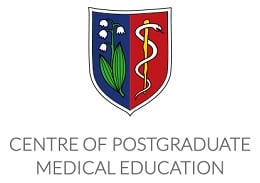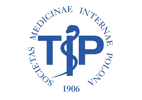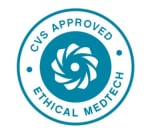May 8, 2019
Conference Centre Faculty of Medicine
Jagiellonian University Medical College
ul. św. Łazarza 16, 31-530 Kraków
See on map
The conference Medical Education Forum 2019 is funded per contract 840/P-DUN/2019 by the Minister of Science and Higher Education, dedicated to the dissemination of science.

Conference
Welcome and introduction
Organizing Committee
Session I: Challenges: expansion of knowledge, conflict and stress
I have too much time: challenges for medical training in an expanding universe of knowledge
Prof. Adrian Freeman
University of Exeter Medical School, UK
The role of stress in test performance: the good, the bad and the ugly
Prof. José Miguel Pego
University of Minho, Portugal
Conflict orchestration: utilization in healthcare
Prof. Hugh O’Doherty
Harvard Kennedy School, USA
Panel discussion
Refreshment break
Session II: Opportunities: technical and non-technical competencies
Patients as educators or patients as partners in medical education: going beyond “being a case study”
Dr. Janusz Janczukowicz
Medical University of Lodz, Poland
Fostering diagnostic competence
Prof. Martin R. Fischer
Ludwig Maximilian University of Munich, Germany
The impact of deliberate practice and assessment on clinical skills attitudes, knowledge and performance
Prof. Brian Garibaldi
Johns Hopkins School of Medicine, USA
Simulation for competency-based medical education
Prof. Matthew Sibbald
McMaster University, Canada
Panel discussion
Lunch break
Session III: Perspectives in education
European Union of Medical Specialists
Prof. Romuald Krajewski
President, UEMS
Prof. Zlatko Fras
Liaison Officer, UEMS
European Federation of Internal Medicine
Prof. Reinold Gans
Chair, UEMS Section of Internal Medicine
American College of Physicians
Prof. Patrick C. Alguire
Senior Vice President Emeritus, American College of Physicians
McMaster University
Prof. Tricia K.W. Woo
Associate Professor, McMaster University
Panel discussion
Refreshment break
Session IV: Possibilities: curriculum development
Medical education and global health: where are we at and where are we going? A tale from Guyana
Prof. Zahira Khalid
McMaster University, Canada
Integration of teaching traditional Chinese medicine with Western medical curriculum
Prof. Ka-Kit Hui
University of California, USA
Why healthcare professionals should study the lessons from the Holocaust: presentation of Casebook on Bioethics and the Holocaust
Dr. Tessa Chelouche
Department of Bioethics and the Holocaust, UNESCO Chair in Bioethics (Haifa)
Panel discussion
Closing remarks
May 9, 2019
Conference Centre Faculty of Medicine
Jagiellonian University Medical College
ul. św. Łazarza 16, 31-530 Kraków
See on map
Hands-on workshops
10:00–12:00 Physicians and students (No places left)
Speakers and trainers:
Prof. Brian Garibaldi (Johns Hopkins School of Medicine, USA)
Max. number of participants: 25
Fee: 30 €
Eligible participants: Physicians and students
Duration: 2 hours
Rationale: Physicians spend little time at the bedside in the modern hospital. Lack of time at the bedside has led to a decline in fundamental skills such as the physical examination, and threatens the physician-patient relationship. Many clinicians lack the confidence to model and teach bedside skills in front of their colleagues and trainees. The Society of Bedside Medicine has created a toolbox to help clinicians improve their bedside skills, and to teach those skills to trainees. In this interactive session, we will practice three tools that can be easily incorporated at your home institution to improve bedside medicine skills. We will demonstrate and provide a teaching guide for a practical approach to the respiratory exam. We will model how to teach the cardiac exam using a hypothesis-driven approach by working through real cases using audience participation software. Finally, we will demonstrate the power of the 5-minute Bedside Moment (5M2) as a way to teach the physical exam. Participants will have the opportunity to create their own 5M2 that can be used as a teaching tool at their home institution.
Learning objectives: At the end of this workshop, participants will be able to:
- Perform and teach a practical approach to the bedside respiratory examination.
- Incorporate a hypothesis driven approach to the teaching and performance of the bedside physical examination.
- Create their own 5-minute Bedside Moment (5M2) to teach bedside skills to learners.
10:00-13:00 Physicians
Speakers and trainers:
Dr. Michal Nowakowski (Jagiellonian University Medical College, Poland)
Max. number of participants: 25
Fee: 30 €
Eligible participants: Physicians
Duration: 3 hours
Rationale: The Objective Structured Clinical Examination is one of the possible forms of skill assessment during pre-graduate and post-graduate training. Research shows that a well-designed OSCE performed by adequately prepared examiners is an effective tool for objective assessment of students. During the workshops participants will use a sample physical exam station to familiarize themselves with the process of preparing an OSCE station.
Learning objectives: At the end of this workshop, participants will:
- Understand the concept of using the OSCE to effectively assess students’ skills.
- Learn how to design individual OSCE stations.
- Learn how to develop and validate the checklists used to assess .
14:00-17:00 Physicians, nurses, midwives, paramedics
Speakers and trainers:
Dr. Michal Nowakowski, Dr. Konrad Jabłoński (Jagiellonian University Medical
College, Poland)
Max. number of participants: 25
Fee: 30 €
Eligible participants: Physicians, nurses, midwives,
paramedics
Duration: 3 hours
Rationale: Multiple choice test questions, also known as items, can be an effective and efficient way to assess learning outcomes. Multiple choice test items have several potential advantages, including versatility, reliability and validity. To take advantage of these strengths, it is essential to develop good multiple choice items.
Learning objectives: At the end of this workshop, participants will:
- Know how to select content that is valid, meets the set level of requirements and is representative of the evaluated material.
- Know the structure and forms of the question core as well as the role of the number and way of formulating distractors.
- Be able to use different forms of test questions.
- Create their own multiple choice items.














